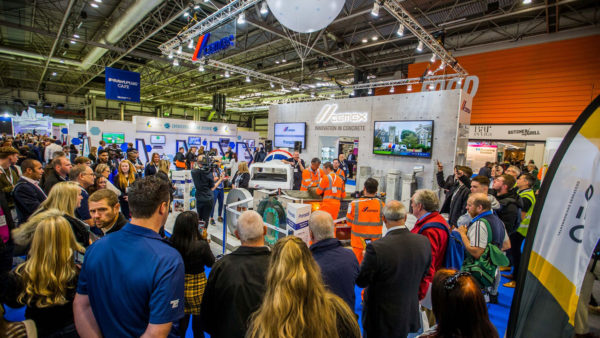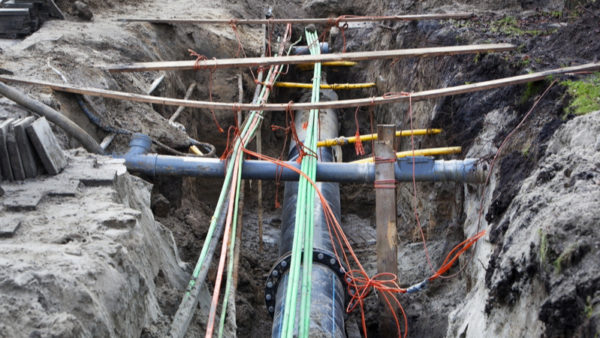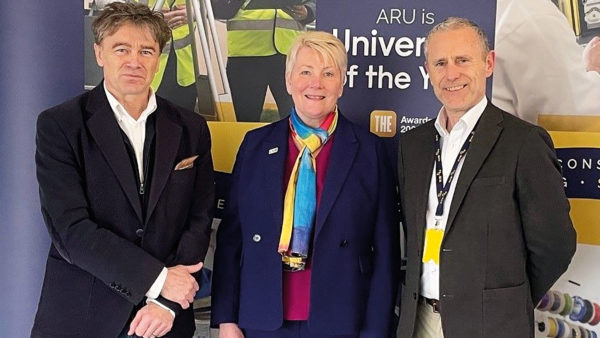As the construction industry starts to get the country back building again, contractors are now considering the economic and safety challenges that lie ahead in the sector’s recovery. David Ayers, piping category manager from Geberit looks at how pre-fabricated solutions can play a big part in this recovery and why such systems could soon see huge growth in the UK.
These last few months have seen unprecedented levels of disruption across the globe, with the impact of covid-19 felt across every sector. The construction industry in particular is now facing one of the biggest challenges in generations as it considers not only the economic impact of covid-19 but how, like so many other industries, it manages health and safety – in particular the impact of social distancing.
Pre-fabricated systems, where a variety of components are assembled offsite, is set to see huge growth here in the UK. Only last year, global management consultancy firm McKinsey & Co predicted that the UK could be one of the modular construction industry’s principal markets for growth, with the pre-fabricated building market expected to grow by 8% between 2019-2025.
The Construction Innovation Hub is also bullish about the potential for off-site construction.
In a recent article, it stated that: “It is vitally important that the post-covid-19 recovery is rooted firmly in new and better ways of doing things… (as) we get Britain building again, we must grasp the opportunity to lay the groundwork for some transformative changes in construction, including a fundamental shift in our approach to quality…Manufactured solutions will have a direct role in supporting a sector-led recovery – reducing the demand for on-site labour and creating new skilled jobs in manufacturing and assembly facilities throughout the UK.”
So what are the benefits of pre-fabricated systems and, in particular, pre-fabricated drainage solutions to contractors?
Simpler process?
Pre-fabricated drainage systems are manufactured in factory-controlled conditions by a highly skilled team of experts. The pipework is cut and welded by the pre-fabricators and the stacks then arrive on-site ready for installation.
Removing the requirement for cutting and welding pipe from site can save significant time from the overall construction process, whilst also reducing the number of people on site at any one time. And this, in particular, could be one of the main drivers behind the potential growth of pre-fabricated products in a post-covid era.
The Construction Innovation Hub noted the positive impact that opting for pre-fabricated solutions can have on social distancing measures: "With greater levels of offsite manufactured solutions, we can help to mitigate both the safety risks of labour-intensive sites placing demands on public transport, and the productivity and output of the sector on site at a time when social distancing looks set to continue for some time to come,” it said.
Likewise, not only can pre-fabricated systems reduce the volume of staff on site, such systems can also help minimise on-site disruption. A conventional drainage stack, for example, will require multiple individual components – all delivered, stored and then assembled on site. A Geberit pre-fabricated system will be carefully planned with a dedicated team to reduce the number of deliveries to site and remove the need for lengthy product storage times; not only does this speed up the installation process it also, crucially, reduces the amount of waste.
Sustainable choices
Indeed, this impact on wastage helps make pre-fabricated drainage systems a sustainable option and one that will reduce the environmental impact of a project.
Manufacturers such as Geberit will work with contractors to carefully plan and build the drainage systems, minimising offcuts and fully utilising lengths of pipes to reduce waste. In addition, all Geberit’s pre-fabricated solutions, such as its Silent-DB20 sound-optimised drainage system, are recyclable.
Efficient ways of working
The very nature of these systems and their methods of construction mean that they are designed for total ease of installation, reducing overall project costs and enabling a simpler, more streamlined process.
Opting for a pre-fabricated solution with a reputable manufacturer can offer contractors a complete solution from start-to-finish. Leading manufacturers will, for instance, have a dedicated team of engineers with knowledge of building standards and regulations. They will then develop a bespoke design which can be adapted to meet any specialist requirements.
Peace of mind
Every stage of the pre-fabricated process is carefully managed. For instance, Geberit’s dedicated team will create drawings from the outset that are agreed with the contractor. Cutting and welding is then undertaken by a specialist team of pre-fabricators, eliminating the potential for any inconsistencies on-site and ensuring that there is no deviation from the approved design.
Every stack is quality tested throughout the entire process by the pre-fabricators. This not only offers complete peace of mind in the installation process but can also, in turn, empower on-site teams to check their own work in greater detail.
Future-proofing your ways of working
As the industry now looks to consider processes that maximise safety and efficiency, pre-fabricated systems can present an effective solution for the industry as it gets to grips with the legacy of covid-19. We predict real growth in this area as the sector adjusts to ‘new normal’ ways of working, getting the country back building again – and ready for the future.
Comments
Comments are closed.










Surpised how this is such a buzz right now when INDIA is almost 10 YEARS ahead of the UK when it comes to prefabrication and modular construction.
Better late than never.